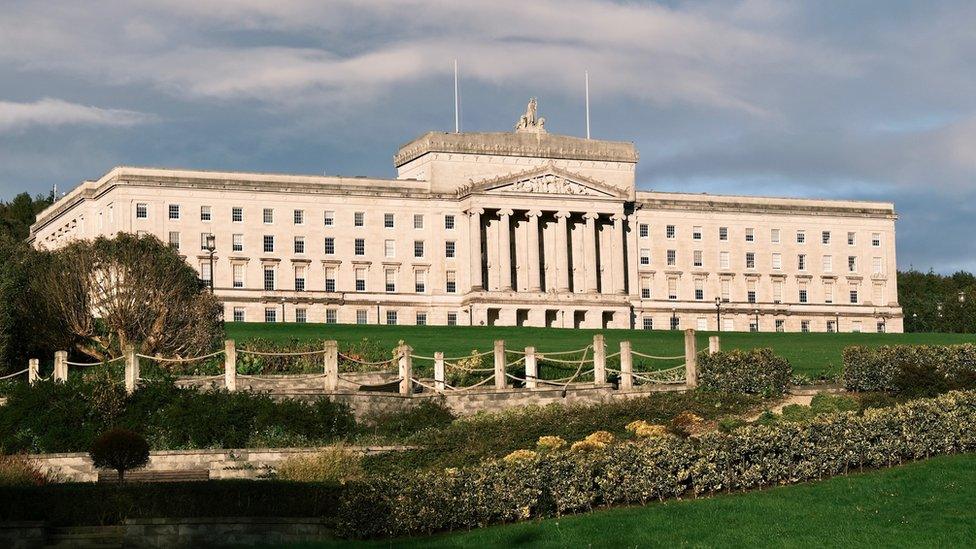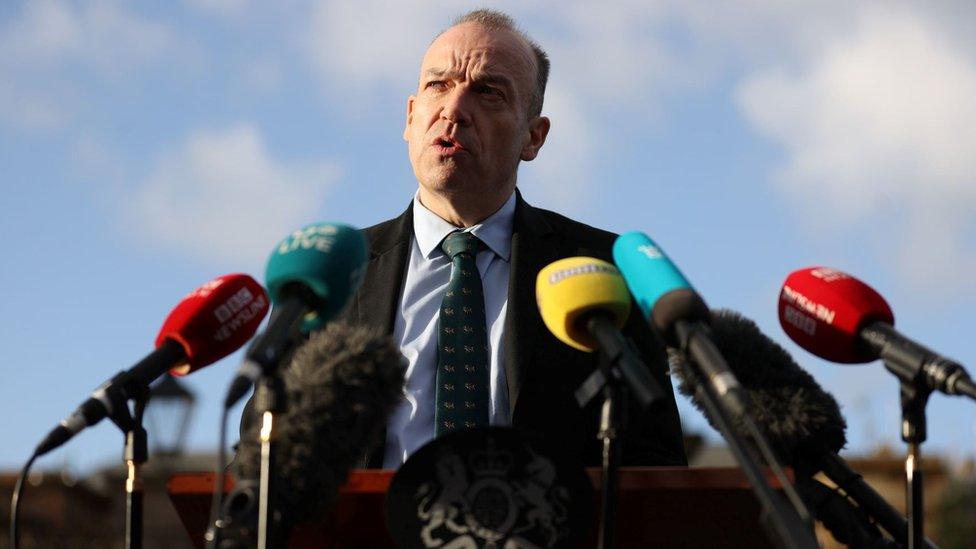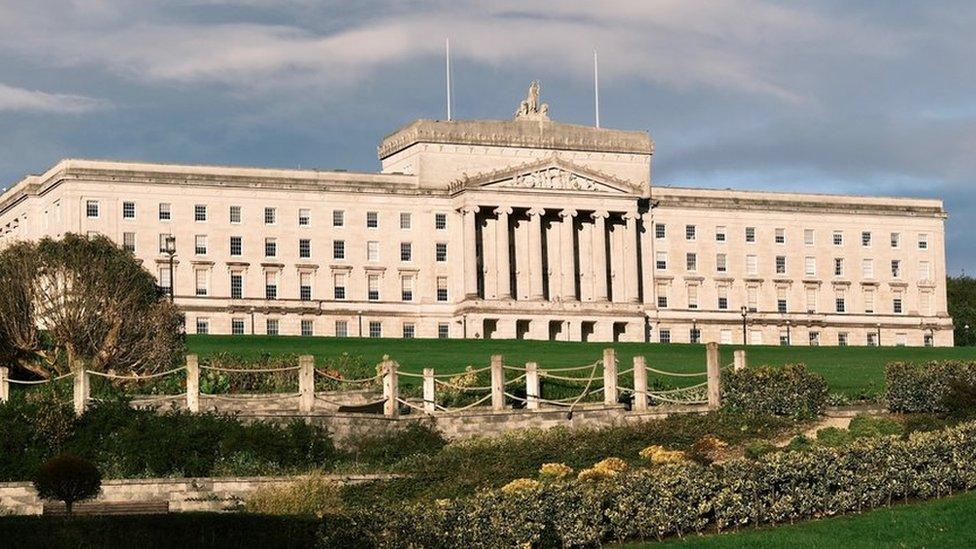Stormont Stalemate: What's happening to the overspend?
- Published

Stormont's overspend will be written off if devolution returns and the executive produces a fiscal sustainability plan.
The overspend over the past two financial years has amounted to almost £560m.
Repayment will initially be deferred for two years to give an executive time to prepare a plan.
It is part of the £3.3bn "final offer" from the government and includes extra money to tackle public sector issues.
£584m of the offer to settle public sector pay claims, £34m for tackling hospital waiting lists and £15m to help the Police Service of Northern Ireland with the impact of a major data breach.
A new "fiscal floor" will guarantee that per head public funding in NI does not fall below 124% of pre head funding in England.
The parties had asked for a higher floor and for it to be backdated to the start of the most recent spending review period in 2021.
The government has resisted that but instead is making £1.125bn of "stabilisation funding" available over the next two years.
It will argue that will have the same impact on Stormont budget as if the fiscal floor had been backdated.
Increased capital investment
Originally the government had offered that money over four years.

A new executive will be expected to raise more revenue locally but the package is no longer conditional on immediately raising rates by 15%.
Rates are the property taxes paid by households and businesses.
The package will also increase the amount Stormont can borrow for capital investment project with the borrowing ceiling rising by £135m over the next five years.
Northern Ireland will also get an investment zone, part of a UK wide policy giving tax reliefs and other incentives to a defined area.
- Published19 December 2023

- Published9 November 2023

- Published23 November 2023
